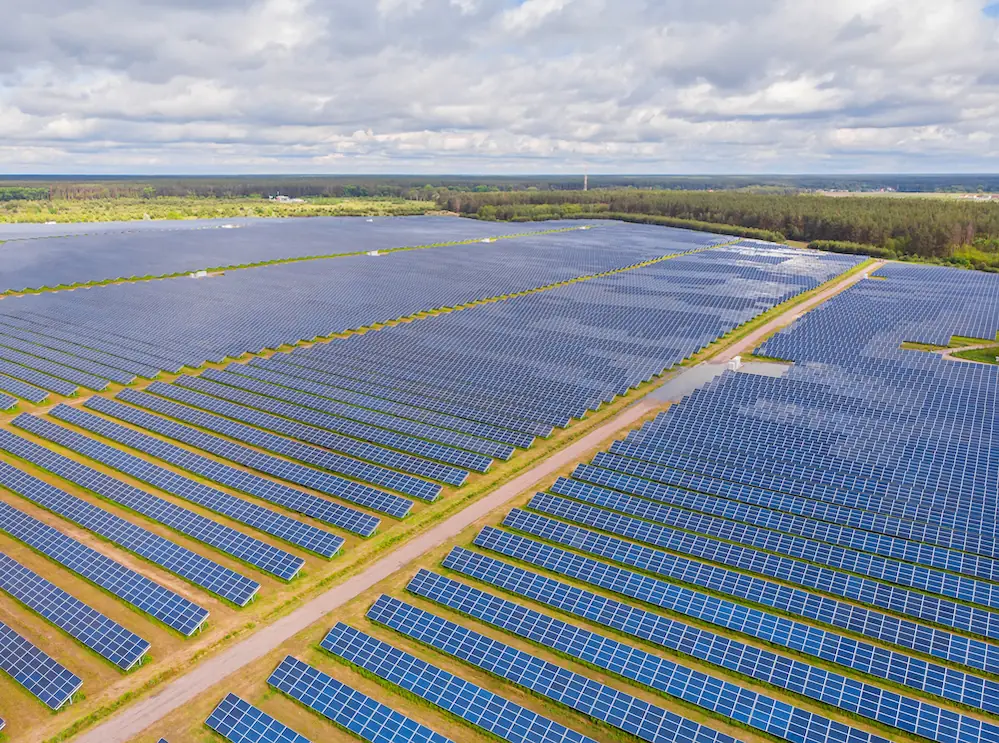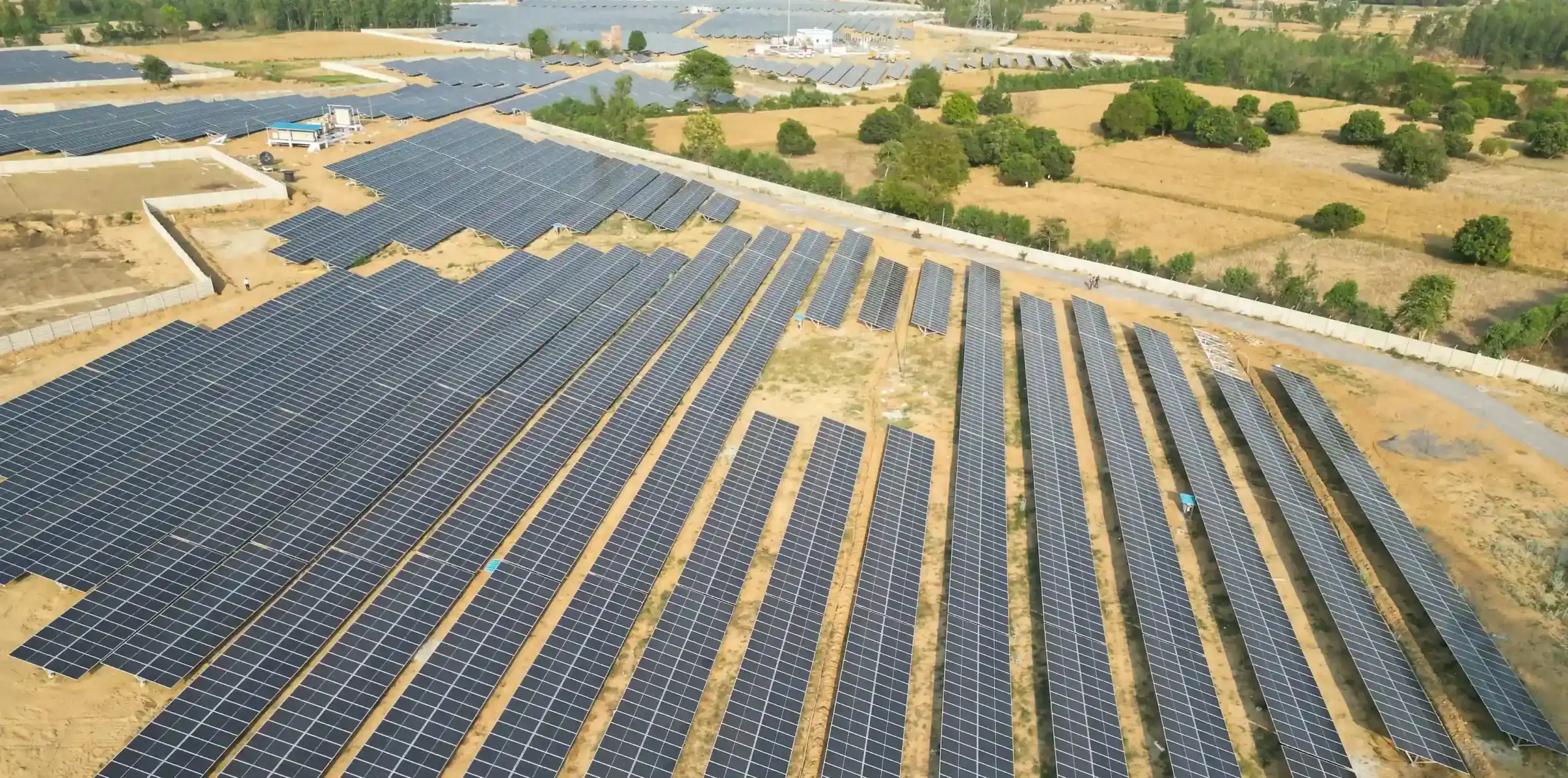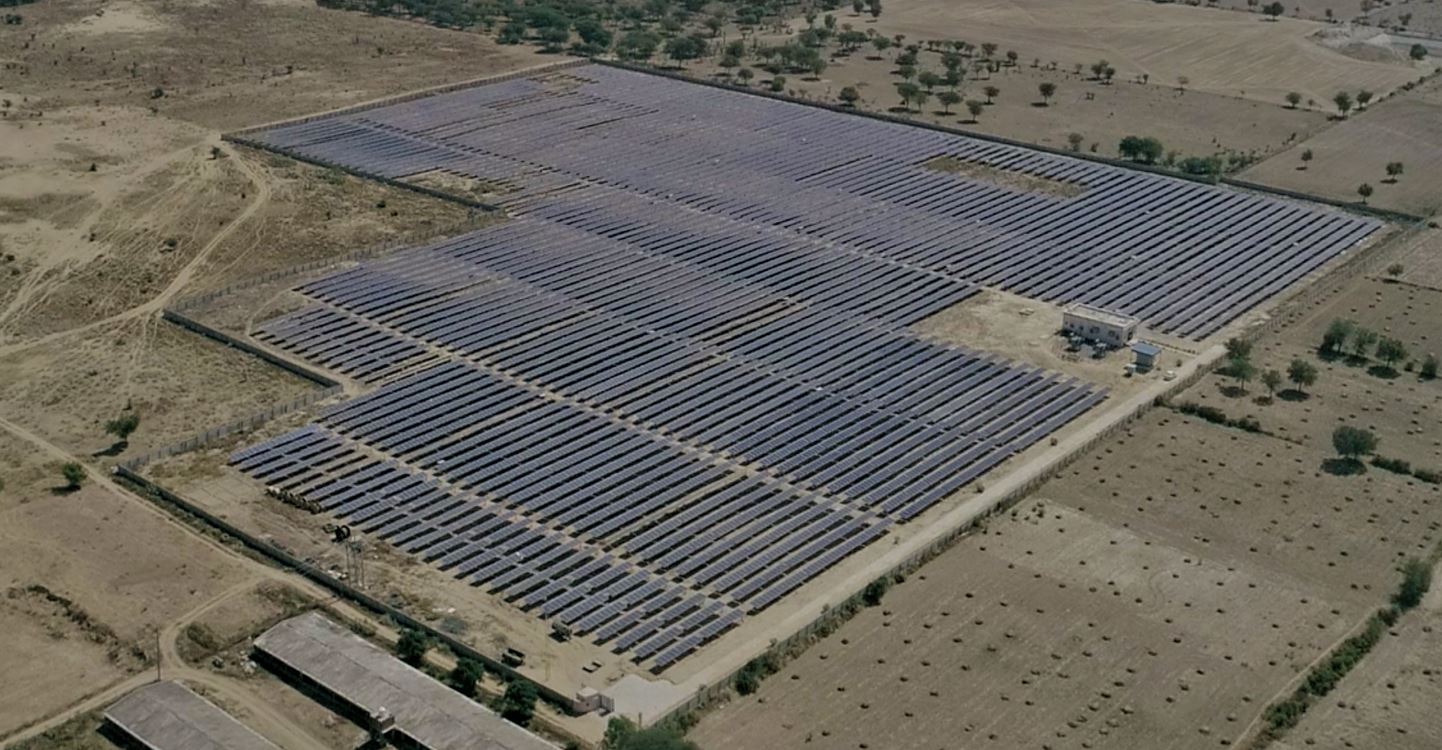Exceptional Rooftop Energy Services Practices for Customer Delight
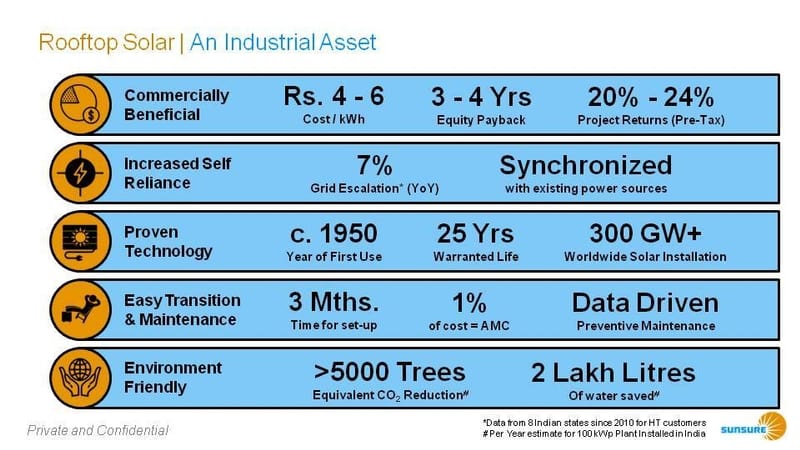
Rooftop Solar is an exciting prospect for Industries today. With tariffs up to 60% below existing Grid rates, great technology and easy transition, Industries stand to save big money on energy use, become more energy secure and create sizeable environmental gains. Sustainably!
The first consideration for most Indian industries is the financing model for making the switch to Rooftop Solar. The following two are the most popular:
- CAPEX model: The industry puts up the capital and chooses an EPC company for implementing the project. SBI, most notably, and multiple other financial institutions like SIDBI, IREDA, etc. provide attractive debt financing options for industries inclined towards this model of going Solar. The industry also stands to benefit from the Accelerated Depreciation facility that can be availed on these investments as per Indian Solar Rooftop Policy.
- OPEX Model: Also known as RESCO Model in India, interested Industries sign a Power Purchase Agreement with Rooftop Solar Developers. Tariff for energy drawn from the rooftop plant is charged for a mutually agreed duration and involves no capital investment from the user. The duration and tariff model for such PPAs are decided based on Industry’s creditworthiness, availability of roof space and developers’ returns expectation. This model is most popular amongst highly creditworthy, large enterprises.
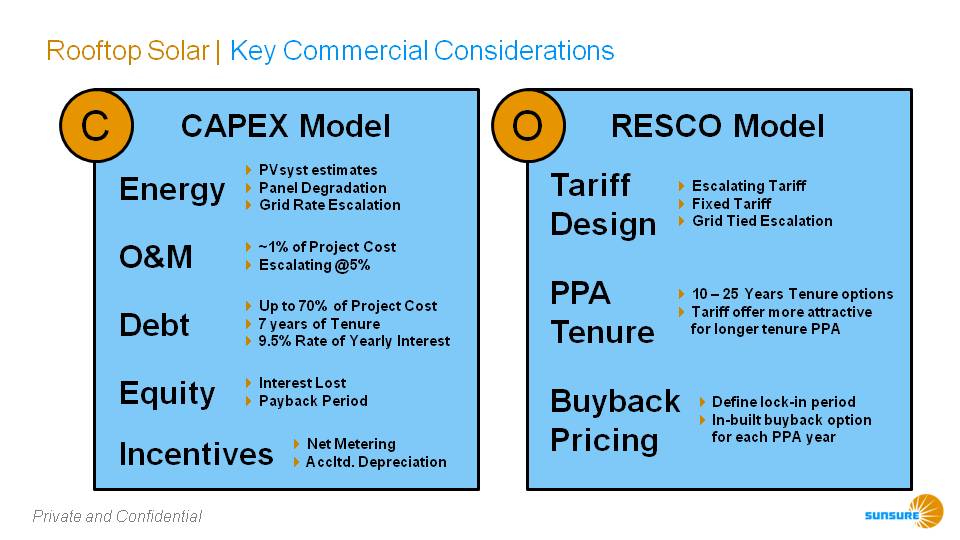
Sound financial modeling is the cornerstone to achieving customer’s commercial confidence in the project. In CAPEX projects, the key to this is business stakeholder engagement to identify the financing structure, depreciation benefit that can be availed and discount rates for their investments. For RESCO developers, ease of net metering and grid availability must be clearly understood in order to gain the maximum from OPEX projects and provide the customer with the most feasible rates. Financial Modeling is a big pain point for the Rooftop Solar industry today. Primarily because of lack of standardization of the input parameters. This leads to customer confusion and subsequent elongation of the sales cycle.
On finalizing the financial model, further engagement is required with the user to build confidence on actual delivery of the commercial impact promised. We believe this is best achieved with sharing actual case studies of past projects. Site visits and interaction with existing customers further reinforce this trust. This is exactly why creating a great experience for the customer is paramount. In Rooftop Solar, these are huge industries which implies staging this experience for not just the business leadership but also maintenance staff and other key stakeholders.
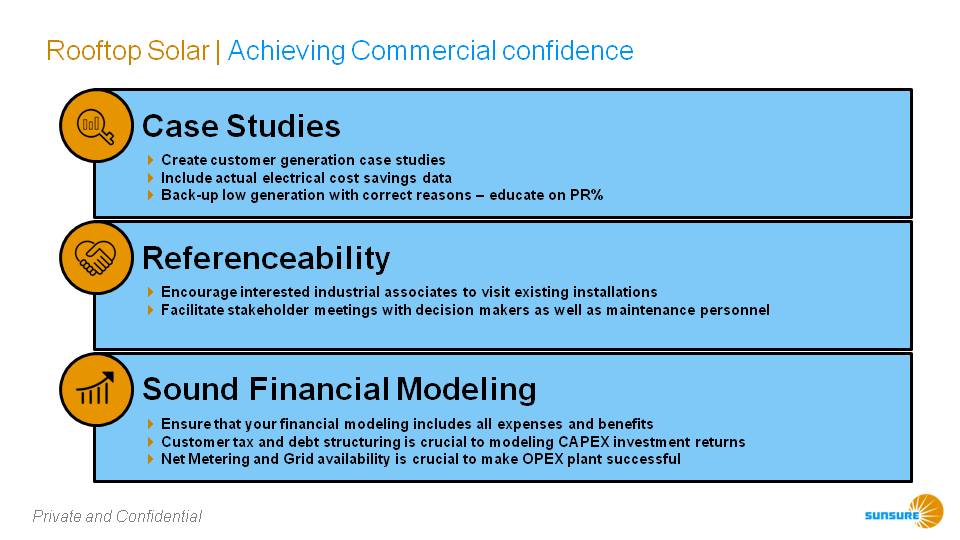
Operations! The most often and key operational considerations of the industrial customer that we have experienced are:
“The Solar Plant will add to another asset that would require attention!”
“How trustworthy is this technology?”
“Will our existing power sources, especially DGs, be at risk in case of over currents, etc.?”
“We will not have a bandwidth to invest in the project management… Can we do this during off-season?”
Well, these are all fair considerations for any industry. And also gaps that need to be bridged with innovative solutions for today’s rooftop solar providers. We believe that the beauty of Rooftop Solar lies in its two outstanding characteristics:
- It is super-easy to do real-time data monitoring of all equipment, down to the last DC string
- Modularity of the design makes it possible to replicate execution quality if intelligent processes are designed
It is the above two principles that we at Sunsure have at the heart of all our work. Remote monitoring allows us to share daily plant performance with all customers. We ensure high quality data management and conduct daily analysis on all plant equipment to raise flags on performance and take preventive action. Project management is made transparent with the use of PM Tools that allow customers to continuously engage with the team over the internet and manage record of all communication. Cloud based tools such as BITRIX and ZOHO are great companions in this effort – these work like popular social networks and provide a great user experience. Having recorded projects also allows us to create project plans faster and on-board new talent in the company.
On the question of technology reliability – well, Tier 1 PV Modules provide warranties on degradation of modules for up to 25 years in their lifetime! This is longer warranty than any other industrial equipment today. Simple preventive maintenance schedules allow for early detection of equipment issues. Having said this, we must remember that a very important practice for all EPC providers is the warranty documentation management. The Project Management group must very effectively transition all warranty documentation along with as-built plant design to the O&M group within the company.
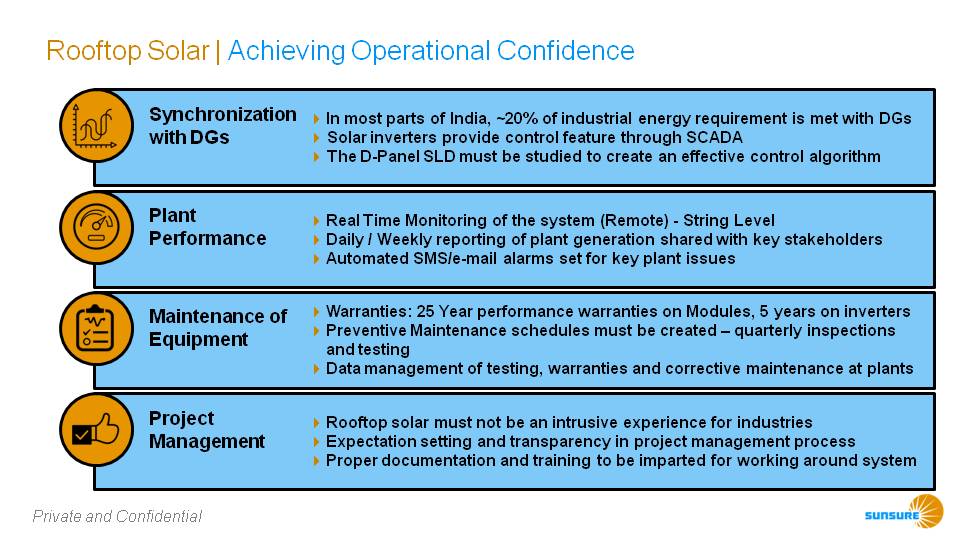
Staging a great customer experience requires identifying critical roadblocks and creating scalable processes to negotiate these. In rooftop solar, this is the holy grail to creating a great company. The rewards for doing this successfully go well beyond the EPC/Developer returns on these specific projects. Think about this – industrial and commercial sector in India accounts for the Lion’s share of the country’s electrical energy use. By contributing to this sector’s energy independence, a plethora of opportunities presents itself to all victors.

Shantanu Faugaat
Co-Founder, Director & COO at Sunsure Energy
Knowledge Hub
Related insights from the industry
